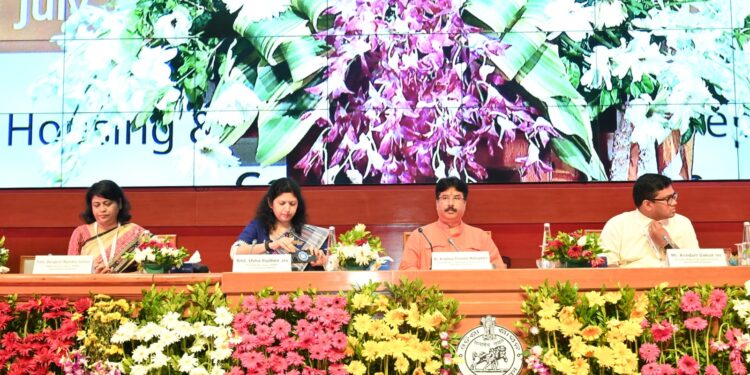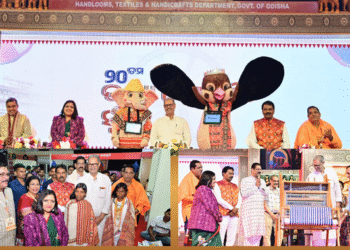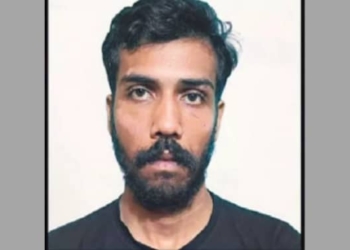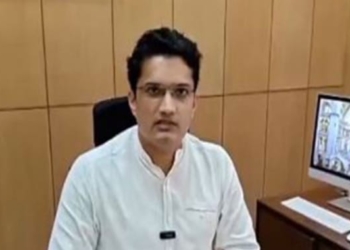The two-day National Conference on “Ensuring Dignity, Safety, and Inclusion of Core Sanitation Workers,” held under Odisha’s pioneering GARIMA initiative, concluded today in Bhubaneswar with a powerful message of unity, policy resolve, and compassion.
The event culminated in the adoption of the Bhubaneswar Declaration, a landmark commitment to safeguard the rights and well-being of core sanitation workers across the country.
The valedictory session was attended by senior policymakers, experts, and sanitation advocates from across India and was graced by Dr. Krushna Chandra Mahapatra, Minister of the Housing & Urban Development Department of the Government of Odisha, who served as Chief Guest. In a deeply moving gesture, the Minister recognised sanitation marketplace vendors for their contributions to the safety of core sanitation workers, highlighting the government’s commitment to acknowledging all stakeholders in the core sanitation value chain.
Smt. Usha Padhee, Principal Secretary of the Housing & Urban Development Department, delivered the keynote address during the closing session. She expressed pride in Odisha’s leadership for bringing the issue of core sanitation workers to the national forefront and emphasised the need to institutionalise learning, action, and empathy. Notably, she announced that the National GARIMA Workshop will now be held annually in July, signifying an enduring national commitment to this cause as declared by Hon’ble Chief Minister Sri Mohan Charan Majhi in his inaugural speech on the first day of the workshop.
Smt. Padhee highlighted key takeaways from the two days of discussions, including the necessity for robust social protection frameworks tailored for sanitation workers, the scaling up of Occupational Health and Safety (OHS) standards, and the formalisation of informal workers through contractual reforms and access to welfare schemes. She also emphasised the importance of using technology and data systems to track welfare delivery and the inclusion of women and transgender workers in sanitation roles with dignity and safeguards.
The GARIMA initiative, launched by the Government of Odisha in 2020, has already been hailed as a model for dignified sanitation work. It aims to protect the rights of core sanitation workers by ensuring safety in the workplace, fair wages, insurance, social security, and respect in society.
Over the past few years, GARIMA has achieved:
- Registration and profiling of over 10,000 core sanitation workers across the state.
- Distribution of personal protective equipment (PPE) kits, health insurance, and regular training.
- Integration with urban local body (ULB) welfare plans.
- Establishment of grievance redressal and Emergency Response Sanitation Units (ERSU) for workers.
During the conference, delegates from various states, international organisations, NGOs, and ULBs participated in thematic sessions on best practices in sanitation workforce management, financing models for social security, mental health and well-being, and innovations in mechanised sanitation and safety protocols.
Smt. Durgesh Nandini Sahoo, Additional Secretary of the H&UD Department, and Arindam Dakua, Director of Municipal Administration, also shared their reflections during the closing session. Dakua proposed the vote of thanks, appreciating all stakeholders, experts, and frontline workers for their valuable contributions and participation.
The conference concluded with a shared resolution to uphold the dignity of sanitation workers not just through policy but also through practice, making every city in India a safer, more equitable space for those who serve at the very core of urban hygiene.
The Bhubaneswar Declaration, the final outcome of the conference, serves as a guiding framework for all states to follow Odisha’s lead in reimagining the sanitation ecosystem with human dignity at its core. Delegates from 12 states and 34 development organisations participated in this two-day conference, which also included core sanitation workers from across the state and officials from the Panchayati Raj Department and ST & SCMBCC Department.
Various technical sessions were organised during the workshop, featuring representatives from different states, development partners, and sector experts on various themes related to the safety of core sanitation workers. An experience-sharing session for core sanitation workers, ULB officials, and Private Sanitation Service Organisations (PSSOs) was also held. Additionally, a field visit to the Odisha Urban Academy, FSTP, and MCC/MRF was organised for delegates to gain practical insights into the work being done in Odisha.






























